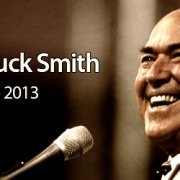Can we tolerate intolerance?
At this moment, just days from Christmas, a whole lot of noise has been stirred up in American pop-culture, resulting from the “Duck Commander’s” words that are to be printed in the January issue of GQ Magazine. The Twitter-sphere, blogosphere and mainline newsosphere are all a buzz, which of course means I have something to say too 😉
Two blog articles have stuck out to me in the last 24 hours. One, a post from Brandon Ambrosino at Time.com and the other from Andrew Sullivan on his own site, dish.andrewsullivan.com. Interestingly, both men are openly gay. Thus, their views are particularly interesting.
Both writers essentially agree that Phil Robertson’s firing is unfounded. Sullivan rightly observes that A&E has fired the reality star for doing the very thing that has made the network a boatload of money, speaking his stereotypically southern, redneck mind. Ambrosino closes with a great question, “Why is our go-to political strategy for beating our opponents to silence them?” Amidst all the chatter I find myself continually landing upon the same reoccurring thought: can we tolerate intolerance?
The collective voices of progressive pop-culture tell us “fundamentalist Christians” that we must be more tolerant of the LGBT community and lifestyle. By tolerance I can only deduce that they mean accepting and in many cases celebrate too. At this moment—barring changes that will likely come in the future—the definition of tolerant (according to the New Oxford American Dictionary installed on my MacBook Air) is “showing willingness to allow the existence of opinions or behavior that one does not necessarily agree with.”
As far as I can tell, myself and most of the Christian pastors and church goers that I know, have been (according to the above definition) doing their best to be tolerant of the Homosexual lifestyle, whether they want to be or not. We’ve tried to show a willingness to allow the existence of opinions and behavior that we—and we believe the Scriptures—do not agree with. However, it does not seem that groups like GLAAD and others within the LGBT community are willing to offer the same tolerance to fundamentalist Christians like Phil Robertson.
My answer to the question is “no.” I cannot tolerate the LGBT and progressive pop-culture’s intolerance of our opinions that they do not agree with. I wish that they were a little more tolerant, and something tells me that Sullivan and Ambrosino would probably agree.










